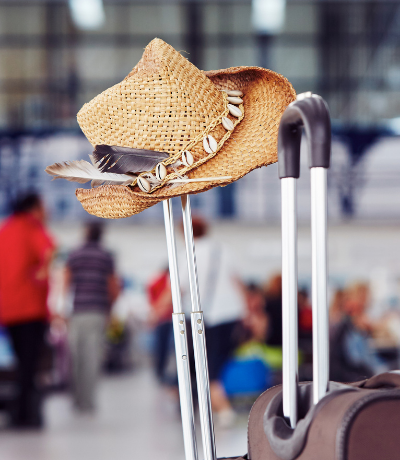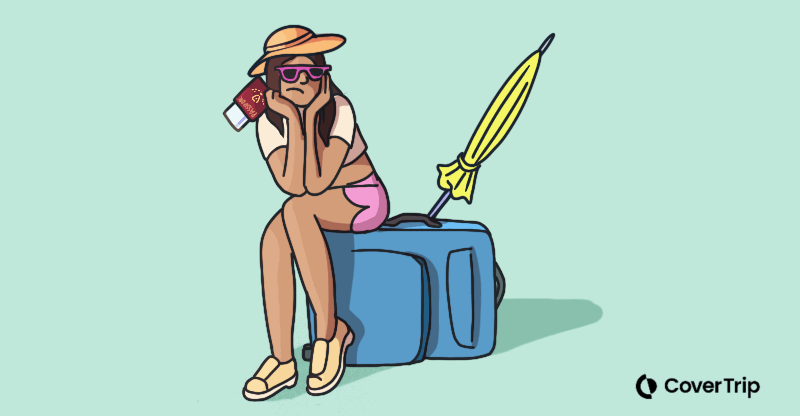5 steps to mitigate a hot summer travel mess
27 May 2022
Please remember the sacrifice of those who died for the United States of America this Memorial Day. We are forever grateful. May their courage and dedication never be forgotten.
It’s Memorial Day weekend, also known in the travel world as the official start of the summer travel season. Until very recently, experts were predicting a very chaotic summer travel season. The newest predictions are only slightly better.
Let’s take a minute to review where we are:
- The entire world is short on staff, which includes airline pilots, bus drivers, TSA agents, and the list goes on.
- Summer weather patterns with hurricanes, thunderstorms, and tornadoes nearly always cause ripple effects for airline travelers.
- Unruly, angry, and downright nutty passenger stories continue. The latest? One pulled the emergency exit door open and walked out on the aircraft wing!
- Don’t forget Covid variants, inflation, ridiculous gas and airline ticket prices, plus a war and now you have the full picture (whew!).
The most closely watched summer travel forecast is the AAA Memorial Day weekend prediction. That organization says that air travel continues to rebound and it’s not going to cause a complete summer blowout.
Why?
AAA’s numbers indicate that only 69 percent of US adults are comfortable taking summer vacation – down a full two points from last week.
In addition to the summer travel advice you’ve always seen: choose an off-season destination, drive instead of fly (if you can afford the gas), and carry your bags, what else can you do to minimize a hot summer travel mess? Read on to find out.

1. Check the Covid restrictions
I know you’re tired of hearing about it (we all are!), but it’s not over yet.
While the UK has relaxed all Covid travel restrictions, other international countries have kept a variety of testing requirements before travelers can enter the country. Here are a few examples:
- As of May 15, Spain expects travelers to show a certificate of recovery or a negative PCR test no older than 72 hours.
- Greece, Italy, and Spain are keeping mask rules in place so far.
- The US still requires travelers to complete a Covid test no more than 24 hours before traveling, regardless of vax status.
2. Find a shortcut
Some airports have introduced new programs that let you reserve a place in the security checkpoint line. One example? Phoenix Sky Harbor lets you use a new program called PHX Reserve to hold your place in line.
You make a reservation up to three days before your flight, and when you arrive, go to a designated checkpoint lane for screening. No waiting.
Cool, right?
3. Plan for delays
Staffing shortages mean delays at nearly every step, so it’s best to plan ahead. Choose the first flights of the day, pack security friendly snacks, arrive early, and be nice to airport and airline staff. They’re facing a tough time too.
4. Plan for lost luggage
If you just can’t get everything you need into a carry-on, you have to plan for lost luggage. Even experienced travelers sometimes check their bags, but they know what to put in their backpack to manage the lost luggage headache.
Pack these three things in the bag you carry on to the plane, and you’ll feel a whole lot safer:
- A back-up change of clothing appropriate for the destination’s weather.
- A mini toiletry kit with at least a toothbrush, toothpaste, deodorant, face wash, and whatever else you can’t live without for a day or two.
- Electronic chargers for every device, a light-weight power bank, and converter (if traveling internationally).
This way, you’ll at least be able to freshen up, keep in contact, and navigate around while you wait for your luggage to catch up.
5. Check the travel health insurance requirements
Despite the current recovery and the reduction of mask mandates, many countries now require tourists to provide proof of travel insurance to enter the country. They’re instituting these requirements so they don’t have to absorb any financial burden for treating uninsured tourists.
Here are some examples:
- Visitors to Belize must have coverage for up to $50,000 in medical expenses and the plan has to cover Covid-19 treatment for up to 21 days.
- Chile requires proof of health insurance for at least $30,000 and coverage for Covid-related expenses.
Most countries require not only travel medical coverage but also trip interruption in case you test positive and have to quarantine in-country.
Check before you book so that you can buy the right amount of travel health insurance or pay the price at the border. Typically, the airline you’re flying will have the latest entry requirements, but you can also check travel.state.gov for destination-specific information.
Related topics
Damian Tysdal is the founder of CoverTrip, and is a licensed agent for travel insurance (MA 1883287). He believes travel insurance should be easier to understand, and started the first travel insurance blog in 2006.
